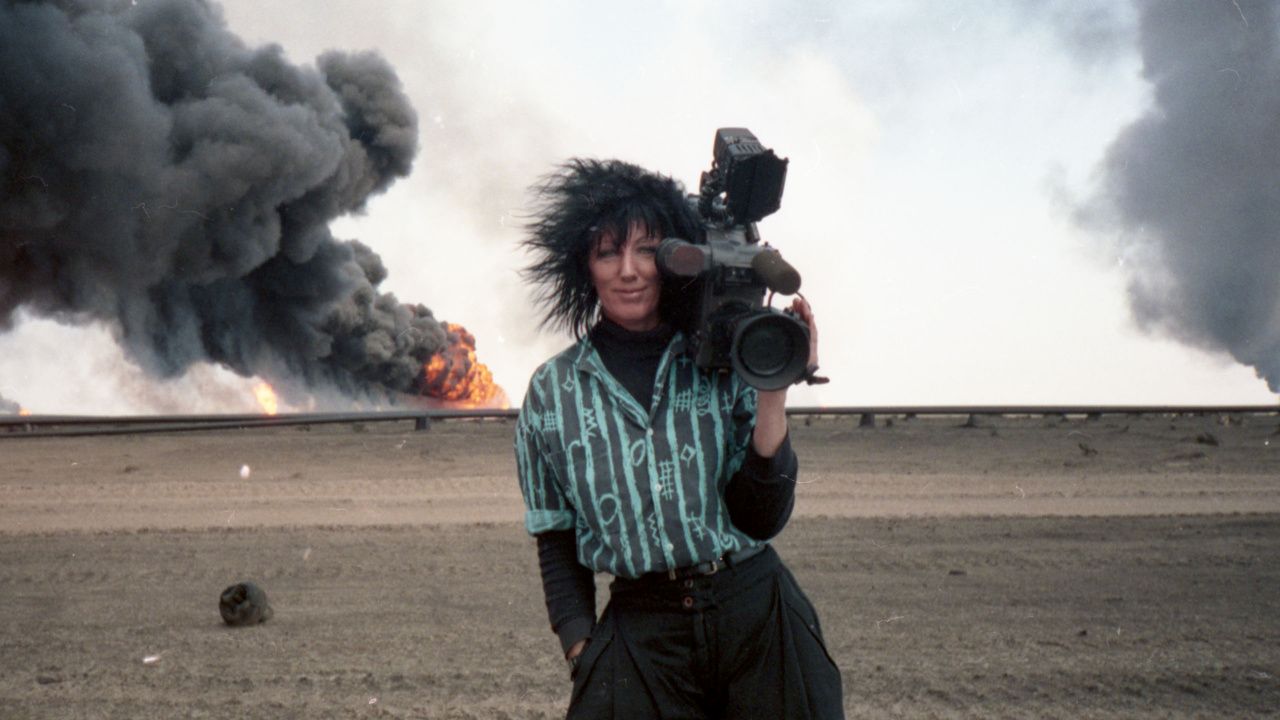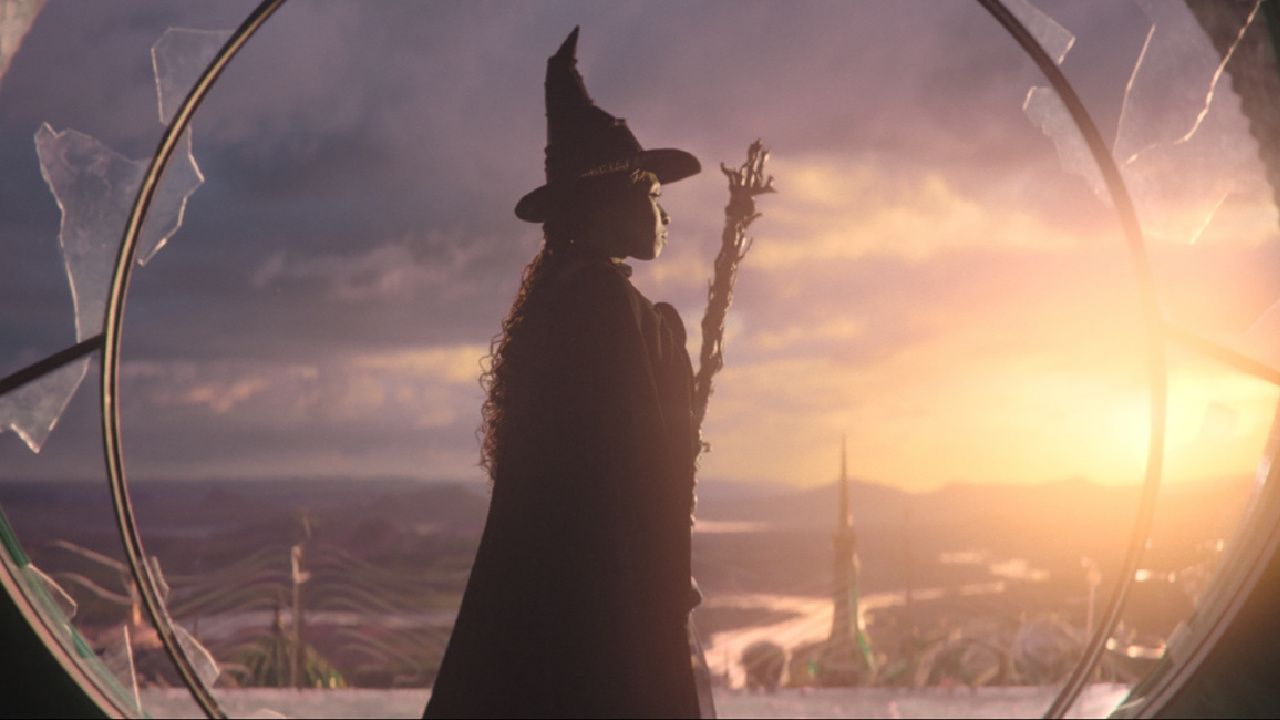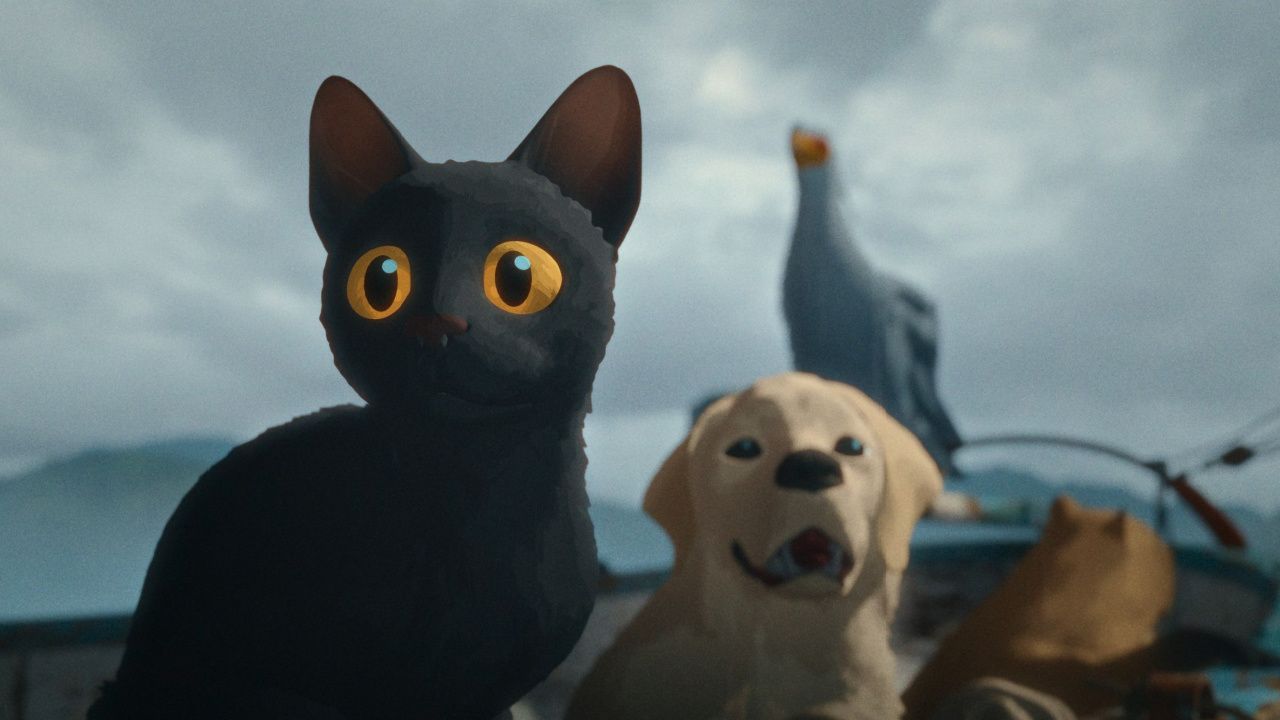Diane Kruger Interview on David Cronenberg Cannes Film ‘The Shrouds’

“I took it hard. I wanted it to be special for him,” says Diane Kruger of performing in David Cronenberg’s The Shrouds, a film the legendary director wrote as part of his grieving process after the death of his late wife, Carolyn.
The Shrouds, which is screening in competition in Cannes, follows Karsh (Vincent Cassel), a prominent businessman and widower who, inconsolable since the death of his wife, invents a revolutionary and controversial technology that enables the living to monitor their departed loved ones in their graves. Kruger plays three roles — that of the late wife and her sister, as well as a virtual avatar that is a rendering in CG animation.
“One thing [David] said to me, which I think Vincent says in the film, is that when his wife passed and they put her in a coffin, he had this horrible, horrible urge to jump in with her because he felt like he couldn’t bear the thought of her being alone in death,” recalls Kruger. “[The film is about] what it really means to let go of someone physically.”
Kruger, a Cannes regular who won the Palme d’Or for best actress for Fatih Akin’s In the Fade in 2017, talked to THR about The Shrouds and what it was like to work with Cronenberg on such a personal project.
How did you join The Shrouds?
It kind of just came to me. It was announced the previous year in Cannes that Vincent [Cassel] and Léa Seydoux were going to star. Along the way, somehow, she dropped out. I was in Paris actually working with Vincent on a French picture when I got the script saying, “[David’s] in Paris. He wants to meet you to offer you this movie.” We talked for hours. I didn’t know at the time that this was based on his personal journey with his wife.
What did you talk about during that meeting?
I’m a big fan of David’s work. I’ve seen a lot of his films and I think anytime you get a chance to work with a visionary director who, in a way, invented his own genre, you want to jump on that opportunity. When we met, what struck me the most was how open he was about his personal journey about his wife, and how he accompanied her until her death. It makes you think about, in very particular circumstances in this Cronenberg world, what true love really is, your mortality, and how people deal with grief.
Did having a film be this personal to the filmmaker affect your performance?
For me, yes. But he didn’t put that on me. In a lot of the flashback scenes when you see the wife in various degrees of sickness, I felt [David] detaching himself in a way a little bit. He directed me, but he put the scene in place and then vanished in his little director’s hut.
You play multiple characters in The Shrouds. Had you done a project like this previously?
I play three characters in the film, so when I read it, that was very attractive to me. I’ve only ever [played multiple characters] once before. I was in a short film for Arte, the TV channel in France and Germany. It was about sexual aggression toward women in the workplace. And so in that short film, I played this woman, a cleaning lady, who was being sexually assaulted on a train. I played her and the assailant. I thought that was such a — excuse my English — mindfuck. It felt so random to be put into the skin of the aggressive while I just had to live through being aggressed. All of a sudden I had to be fully committed to feeling righteous about doing the aggression. Here, what interested me is the wife, whose passing was the most difficult because it was the most personal to [David] and obviously the closest to him. They are very vulnerable scenes and, in a way, quite shocking scenes. There’s a sex scene between Vincent and I, husband and wife, and my hip breaks while we are having sex, and that is something I believe truly happened. I don’t know if they were having sex or they were just hugging, but that’s something that truly happened and it’s shocking in the film and it was shocking to play, as well. Then the sister is so the opposite. She was so eccentric and a conspiracist. She was a lot of fun to play.
With those two roles, you are playing both the person who is being grieved and someone who is grieving for them.
It definitely is a movie that made me think about my mortality in a big way. You’ve seen films about grief, I myself have made films about grief, but I what I think is particular here — and I’ve seen it once before in Amour by Michael Haneke, which won the Cannes Film Festival — is it’s about a couple. It’s not the family, it’s not the children. It’s about what happens between a man and a woman with that love that you physically had for someone and that you need to let go of. She dies and she’s in bed for quite some time, decomposing because he can’t let go of the physical part of her. I think we don’t talk about that very often. You see me in the coffin, as well. That’s part of the film and that, to me, was shocking. But not in a way of, “Oh, here’s a filmmaker trying to be shocking to an audience.” It felt like [it was saying,] “This is us.” This is what we’re going to look like in there. That strange atmosphere that his movies have is amplified here, because it is so personal and it is human. Every one of us has thought about what it would be like to lay in a coffin.
How would you describe Cronenberg’s directing style?
I was warned from the get-go that he doesn’t do any table reads, at least he didn’t on this one. We didn’t do any rehearsal. Even though I was in Canada a couple of weeks before we started filming, I didn’t see him very much. I was like, “Wait, are we not going to rehearse? Or talk about stuff?” Nope, nothing. I figured with the experience now that I have as an actor, that he was going to be stepping on set and expecting [me] to be on. There’s no, “What if I try this? How about this line?” He wrote [the script] himself, so I figured he’d be pretty particular about that — and that was right. The night before he started filming, I called him and I said, “How much are you really attached to each word?” He was like, “Oh no, I am [attached] to every word.” So, there’s no improv, there’s no trying different things. That would’ve really been unnerving to me in the beginning of my career because you’re so dependent on a director guiding you, and that’s not Cronenberg. He hires, you have that meeting with him, and then he directs you every once in a while.
So, did you and Vincent have any time to rehearse in order to establish your multiple onscreen relationships?
I was lucky we were both doing this French picture. [Vincent] was nervous because he hadn’t done a lead role in the English language and had a lot of dialogue. He was working on that for months and months and months prior. Since [David] didn’t rehearse at all, [Vincent and I] would always meet in Toronto, just going over next day’s work. I love Vincent. He’s a really great partner in crime, and he is kind of matter-of-fact, just like David is in many ways. It was kind of freaky to me how much he ended up looking like him. It is the hair. And they had a great relationship because they had worked together a couple times. It was hands down one of the better experiences I’ve ever had on set.
How is it putting such a personal project in front of a Cannes audience?
Cannes is such a particular atmosphere and moment. They love David there, so I’m hoping that they can see the true heart this film has, apart from the other weirdness that’s going on in the movie. I’m hoping that it’s a very accessible film for audiences, maybe more so than some of his other work. I’m hoping they are tender with his story.
Read the original article here






